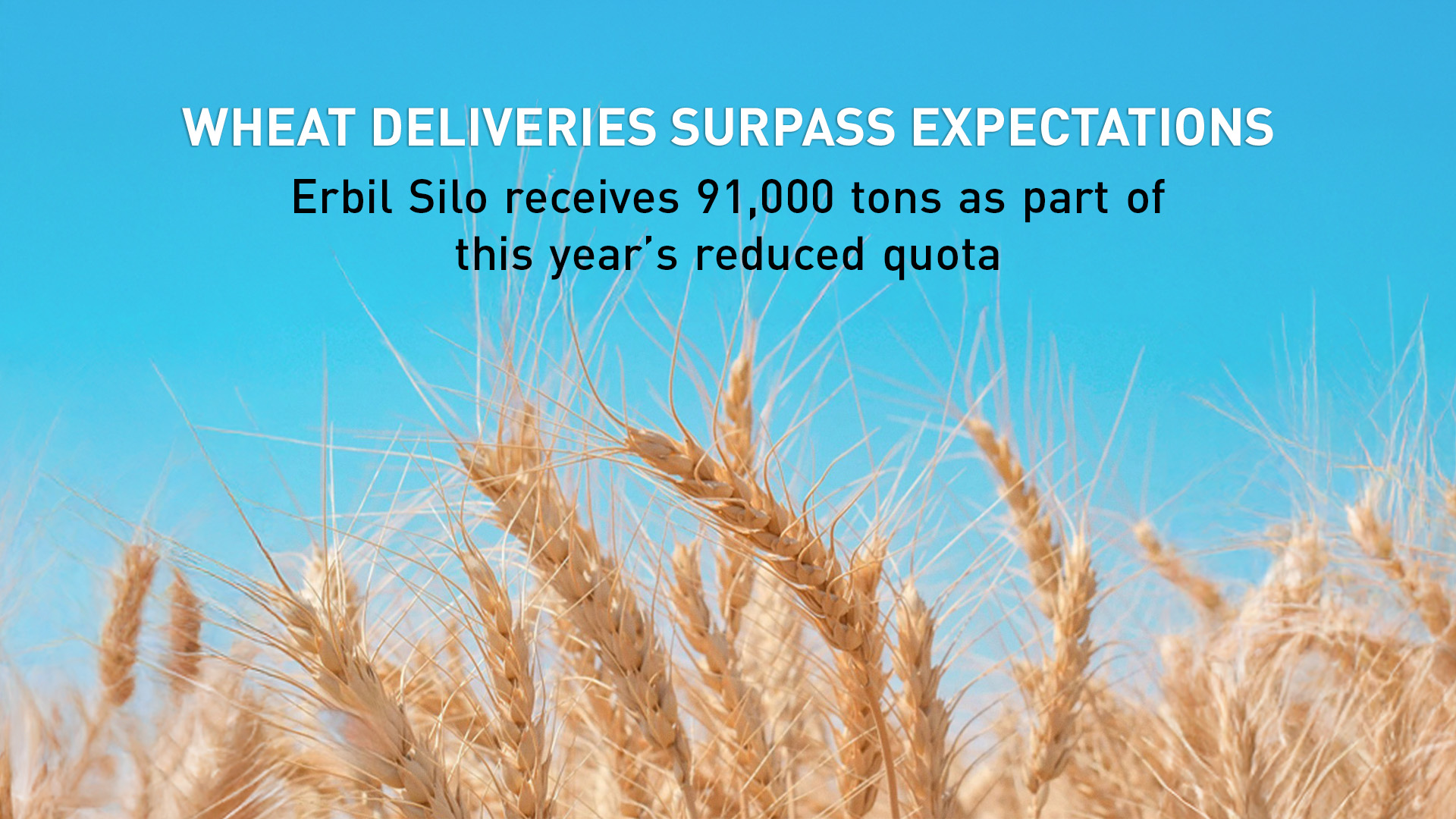Erbil Silo Receives 91,000 Tons of Wheat
Erbil Silo has received 91,000 tons of wheat from farmers so far, out of this year’s reduced 122,000-ton quota, down from 225,000 tons last year. Despite low rainfall, wheat quality is high. Limited storage and reduced national procurement have impacted regional farmers.

By Kamaran Aziz
ERBIL (Kurdistan 24) — The Director of the Erbil Silo, Miran Bakhtyar, announced that 91,000 tons of wheat have so far been received from farmers in Erbil province, as part of this year’s reduced quota of 122,000 tons. This marks a significant decrease from last year's quota of 225,000 tons.
Speaking to Kurdistan24's correspondent Ahmed Abdolsamad, Bakhtyar explained, “Within Erbil province, 122,000 tons have been allocated for us to purchase out of the total 400,000 tons for all of Kurdistan.”
He added, “As of yesterday, 91,000 tons of wheat have been received from farmers at the Erbil Silo, and the process, which began on June 15, is ongoing. There are 31,000 tons remaining to be collected.”
The Kurdistan Regional Government (KRG) has decided to purchase the remaining wheat from farmers across the region, including those in Gwer and Debaga.
“In coordination with the Iraqi Ministry of Trade, today is the first day of purchasing wheat from the farmers of Gwer and Debaga,” Bakhtyar stated. “The amount is approximately 27,000 tons, which, if measured by vehicle, equates to 1,198 truckloads. Therefore, we must receive this entire amount.”
This year’s quota represents a 50 percent reduction compared to last year. The Iraqi Ministry of Trade has likewise reduced its overall wheat procurement from farmers in the Kurdistan Region, down from 700,000 tons to approximately 400,000 tons. This cut has impacted farmers across all provinces.
Bakhtyar noted that despite low rainfall, the wheat quality this year remains relatively high.
“This year's wheat quality is not bad, despite the low rainfall. There is more grade-one wheat than grade-two,” he said. “The price for top-grade wheat with no deductions or issues is 850,000 dinars. The quality of the wheat is determined by laboratory testing, and the price is set on that basis.”
Regarding storage capacity, the Director revealed that 97,000 tons of wheat from the previous year remain in the silos, limiting space for new procurement.
“We were unable to include the Qushtapa silo in the purchasing process because it was already full. Therefore, we were forced to receive wheat only at the main Erbil silo,” Bakhtyar added.
He concluded, “Although there was little rain, the amount of wheat this year is much greater than anticipated.”
Kurdistan24's correspondent Ahmed Abdolsamad contributed to this report.
